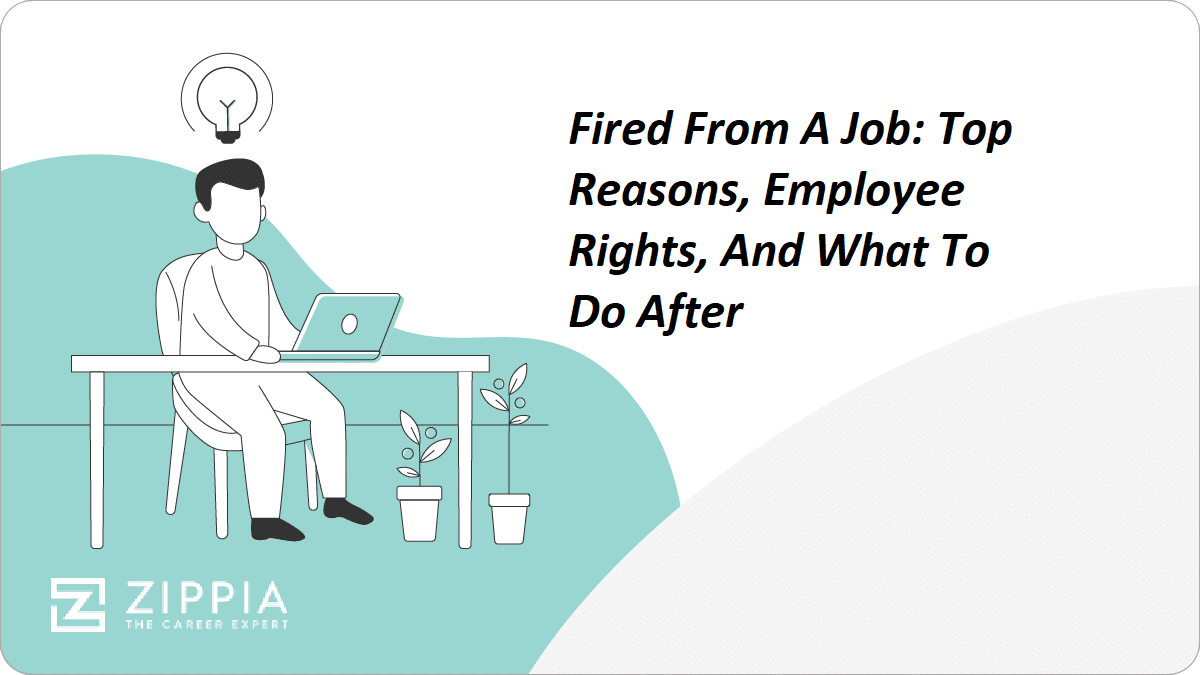- Common Questions
- Interview Questions
- How To Answer Tell Me About Yourself?
- Elevator Pitch
- Where Do You See Yourself In 5 Years?
- What Are Your Career Goals?
- When Can You Start?
- How Do You Define Success?
- Describe Your Work Ethic
- Where Are Your Current Duties?
- What Are Your Learning Goals?
- Intrinsic Vs Extrinsic Motivation
- What Is Your Desired Salary?
- What Makes You Unique?
- Why Are You The Best Person For This Job?
- Reasons For Termination
- What Are Your Work Values
- How To Make A Hard Decision?
- What Are You Most Proud Of?
- Personal Code Of Ethics
- Problem Solving Interview Questions
- Taking Initiative Example
- How Do You Prioritize Your Work
- Explain Gaps In Employment
- Most Rewarding College Experience
- What Is Your Work Style
- Tell Me About A Time When You Made A Mistake On The Job
- Tell Me About Gaps In Employment
- What Are You Passionate About
- What Skills Would You Bring To The Job
- Who Is Your Mentor?
- Tell Me About Gaps In Employment
- How To Answer Tell Me About A Time You Disagreed With Your Boss
- How To Answer Common Screening Questions
Find a Job You Really Want In
Summary. Work values are the qualities and principles that an individual strives to embody in their day-to-day operations. The work values that you have will help guide you and choose a company that aligns closely with your values. Examples of work values include responsibility, honest and integrity, and independence.
There are several different factors that you should consider when you’re applying for a new job.
The most important and often overlooked factor that you should take into account during every job search: work values.
Key Takeaways:
-
Work values are the qualities and principles that an individual strives to embody in their day-to-day operations.
-
It’s important to focus your job search on roles with job descriptions that closely align with your professional background, strengths, skills, experience, as well as work values.
-
It’s important to remember that not all companies will have the same work values, and not to compare each job solely on that.

- What Are Work Values?
- Examples of Core Work Values
- Intrinsic vs. Extrinsic Motivation
- How to Identify Your Work Values
- Traits Other than Work Values to Pay Attention to During the Job Search
- How Hiring Managers Assess Your Work Values
- Work Values FAQ
- Final Thoughts
- References
- Sign Up For More Advice and Jobs
What Are Work Values?
Work values are the qualities and principles that an individual (or a group of people) strives to embody in their day-to-day operations, as well as their long-term goals.
-
The core values of a workplace vary from organization to organization. One employer, for example, might value honesty above everything else and conduct their business accordingly. Another might consider efficiency or productivity as the pinnacle of their business’ hierarchy of values.
-
The bottom line is that no two businesses are cut from precisely the same moral cloth. The values that you might have admired in your previous employer could be completely absent from your future workplace. On the other hand, the values you found to be conspicuously lacking in your previous workplace might be considered a top priority with your next employer.
-
Work values should always play a central role in your job search. When you find an employer whose work values align with your own, you’ll be much more likely to enjoy long-term job satisfaction, productivity, and stability.
-
Your values serve as the guide to your behavior. When your core work values are in alignment with those of your employer, you’ll be able to arrive at work each day with a deeply felt sense that you’re doing something beneficial to yourself, your community, and the world at large.
Working for an employer whose values do not align with your own, on the other hand (as many of us have found ourselves doing at one point or another), is virtually guaranteed to lead to greater amounts of stress, anxiety, and dissatisfaction at work.
Choose From 10+ Customizable Resume templates
Zippia allows you to choose from different easy-to-use resume templates, and provides you with expert advice. Using the templates, you can rest assured that the structure and format of your resume is top notch. Choose a template with the colors, fonts & text sizes that are appropriate for your industry.
Examples of Core Work Values
Here are some common examples of core work values that you might encounter in a job description or on a company website. As you review this list of work values, take some time with each one to pause, reflect, and ask yourself: How much does this matter to me, to my own life, and to my personal career goals?
-
Honesty and integrity. Abstaining from lies, falsehoods, and cheating.
-
Philanthropy. Aimed at helping others and making a positive difference in the lives of those who are less fortunate.
-
Financial success. Striving to obtain large quantities of money and material wealth.
-
Work/life balance. Prioritizing a healthy and happy medium between one’s professional and personal lives.
-
Creativity. An ambition to create more original and innovative material at work.
-
Environmental sustainability. Aiming to reduce one’s impact on the environment and to increase public awareness of environmental issues.
-
Fame. Endeavoring to become a celebrity or (at least) a well-known public figure.
-
Health and wellness. Prioritizing the maintenance of one’s physical, psychological, and emotional wellbeing.
-
Independence. Striving to achieve greater degrees of autonomy and creative freedom in the workplace.
-
Responsibility. Placing a high moral value on the importance of completing one’s work duties, to the best of one’s abilities, every single day.
-
Ambition. Aiming to excel at the very top of one’s field.
-
Leadership. A desire to be a mentor to others, motivate them, help them grow, and achieve greater levels of success.
Intrinsic vs. Extrinsic Motivation
When discussing your work values, it’s important to step back and distinguish between things that you’re intrinsically motivated to do compared to things you’re extrinsically motivated to do.
-
Your intrinsic motivations are your reasons for work that have nothing to do with rewards or recognition and are just plain enjoyable for their own sake. For example, you might really like giving presentations or get a good feeling when you can help a client resolve a problem.
-
Extrinsic motivation involves the rewards that are separate from the experience of work itself. The top extrinsic motivator for most people with regard to work is money, but other things like vacation time, health insurance, and other perks can be extremely valuable as well.
We’ll mostly be discussing work values in terms of intrinsic motivations, but it’s important to recognize that some organizations value this side of work values less as a whole. After all, a position that offers job security, a decent paycheck, and a basic suite of benefits is pretty valuable in its own right.
How to Identify Your Work Values
It’s impossible to find an employer whose work values align closely with your own if you don’t first put in the work to articulate your core values. To understand what your core values are ask yourself these questions:
-
How should a job-seeker identify their work values?
-
What are the principles that matter to you the most?
-
What are the qualities or attributes that you admire the most in other people and organizations?
Your core work values are those principles that matter most to you. This will be what you’ll ultimately use as a guide to all of your future professional decisions and actions. They are the building blocks of the ethical framework, which will determine the course of your career. (If that sounds hyperbolic, just take a moment to consider what a career without core values would look like. Hint: it’s not pretty).
If you think about either of these questions for even a moment, you’ll probably have a long mental list form in your head. However, when it comes to identifying work values, it will be essential to narrow that list down to a manageable number – say, between five and ten core values. That way, your core work values will be numerous enough to leave you with a fair amount of options for your next job, but it will also be brief enough to remember easily.
Traits Other than Work Values to Pay Attention to During the Job Search
As we mentioned in the introduction, there are several factors that every job seeker should take into account during the job search process. And as we’ve seen, personal values are critically important, and job candidates should be sure to carefully reflect on their core work values – as well as those of a potential employer – before submitting any job application.
Of course, there are other personal qualities that job candidates look for in a potential employer – and vice versa.
-
The culture of a workplace is essentially the sum total of the attitudes, behaviors, rituals, and intangible feelings that imbue an office or workplace with a particular feeling. In other words, it’s the overall quality (or lack thereof) of the employee experience.
For job candidates, taking the time to learn more about a potential employer’s workplace culture is at least as important as learning about their work values. In fact, those two elements actually overlap and influence one another in a lot of ways.
-
If an employer values a healthy work/life balance, they’re much more likely to routinely engage with their employees about matters pertaining to mental health. They’re also far less likely to oversee a work environment that places unfair or unreasonable demands on their workforce.
-
Consider taking interests into account during the job search. Often, a job candidate might accept a job offer that pays well, and that aligns with their core values, but that has nothing to do with their interests or long-term career goals.
Someone passionate about graphic design, for example, might accept a job as a retail clerk at a clothing store because she gets along well with the owner, and she needs a way to pay her monthly bills.
Before you accept a job offer, be sure to ask yourself: Will this opportunity allow me to develop the skills and to build the professional network that I’ll need to land my dream job? Or will my energy, time, and attention be better spent elsewhere?
How Hiring Managers Assess Your Work Values
Hiring managers and recruiters will do their best to gauge your work values in an attempt to learn if you’ll fit in with the existing company culture. The best way to predict your future fit is to ask questions about your past behavior.
-
These are what are known as behavioral interview questions. You can tell an interviewer is asking a behavioral question because they’ll usually start with a phrase like “tell me about a time you” or “describe a time when.”
-
The best way to answer these types of questions is to use the STAR method, which stands for Situation, Task, Action, Result. It’s a great way to organize your answer into a coherent but brief story.
-
While you may not get a direct interview question asking “what are your work values,” the way you approach your other answers will make your values apparent. Make sure that stories you tell about your past work behavior paint you as someone who would fit in well with the culture. That means doing research on the company ahead of time to learn what they value.
Of course, don’t go lying about your work values just to please an interviewer. At the end of the day, values are important, so it’s essential that everyone’s on the same page.
Work Values FAQ
-
Why are work values important?
Work values are important because they will be the guiding principles to what is most important to you about the way you work. The core values of a company will be different depending on which company you are looking at. Having work values will help you align your values with a company.
-
Yes, work values can change for a person. What you might value when you first start out in your career may no longer be a core value you are years down the road. It’s important that your values change and grow as you develop and grow in your professional career.
-
You should choose your work values on the principles that matter most to you. These values will be the building blocks that will determine your career. As you are picking your work values, choose between five and ten core values.
Final Thoughts
Finding the ideal job opportunity is about more than just landing the best salary or gaining the most prestige (though there’s something to be said for both things). It’s also about finding a role where you can be your truest and most genuine self – a position where you can confidently express your core values and count on those being shared, at least to some degree, by your colleagues and managers.
To make this scenario a reality, any job candidate needs to commit the time and effort well ahead of time to identify their core work values. These will vary from person to person, and that’s okay. In fact, it’s the natural order of things. Your core work values make you who you are – as an employee, a professional, and an individual with long-term career goals. Don’t compromise them. Celebrate them, and make them a priority in your next job search.
References
- Common Questions
- Interview Questions
- How To Answer Tell Me About Yourself?
- Elevator Pitch
- Where Do You See Yourself In 5 Years?
- What Are Your Career Goals?
- When Can You Start?
- How Do You Define Success?
- Describe Your Work Ethic
- Where Are Your Current Duties?
- What Are Your Learning Goals?
- Intrinsic Vs Extrinsic Motivation
- What Is Your Desired Salary?
- What Makes You Unique?
- Why Are You The Best Person For This Job?
- Reasons For Termination
- What Are Your Work Values
- How To Make A Hard Decision?
- What Are You Most Proud Of?
- Personal Code Of Ethics
- Problem Solving Interview Questions
- Taking Initiative Example
- How Do You Prioritize Your Work
- Explain Gaps In Employment
- Most Rewarding College Experience
- What Is Your Work Style
- Tell Me About A Time When You Made A Mistake On The Job
- Tell Me About Gaps In Employment
- What Are You Passionate About
- What Skills Would You Bring To The Job
- Who Is Your Mentor?
- Tell Me About Gaps In Employment
- How To Answer Tell Me About A Time You Disagreed With Your Boss
- How To Answer Common Screening Questions

















